Workshop
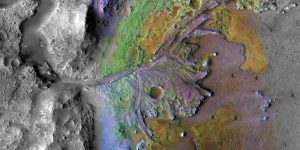
Workshop: Remote Sensing the Red Planet
Shane Houchin
Remote sensing is the acquisition of information about an object, area, or phenomenon without making physical contact. Typically performed by satellite or aircraft that measure the reflected or emitted electromagnetic radiation from a surface. Applications of remote sensing include, Geology, Hydrology, Agriculture, Conservation, Urban Planning, Transportation, Glaciology, Forestry, Ecology, to mention a few.
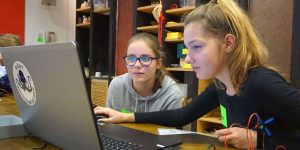
Scratch-Introduction: Rocket launch!
You can`t get to space without the help of computers – so here’s an introduction for children (10-14 years) who want to learn programming. Via the free online platform Scratch we will animate an interactive rocket launch.
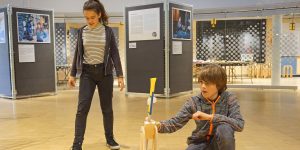
A sketchnote-workshop online - our experience
Participatory workshops with students offer exciting new perspectives for scientific communication, but what happens when they have to be done remotely? In this online seminar we will explore the challenges and opportunities provided by shifting a Sketchnote workshop with students to an online format.
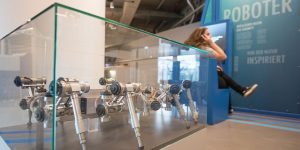
Space in the classroom? - It's not rocket science!
Everybody loves space, but how can teachers include space topics in class? This online seminar offers simple experiments as supplements to “normal” STEM-lessons and introduces extracurricular learning centers that offer deeper dives.
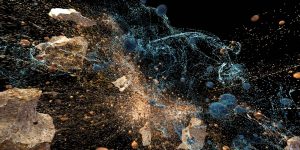
Live Program of Telluric Vibrations, UCLA Botanical Gardens – Los Angeles
Enjoy the extensive live Program of Telluric Vibrations, UCLA Botanical Gardens – Los Angeles
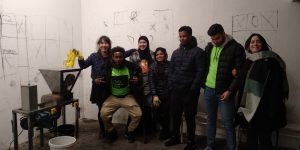
Bioplastics and the New Materiality of Waste
Idil Akdos (NO)
How do we dispose of new materials safely? The CitiComPlastic team investigate how bioplastic waste can be safely transformed into compost. Join them to discuss how new materiality interfaces with environmental issues, and how we need to change our practices, structures, policies and perspectives to address this.
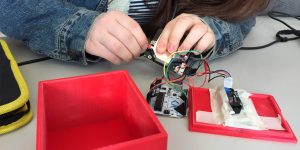
Schools and the Science of Air Pollution
Sonja Grossberndt (NO)
Together with teachers and students, the team from NILU shows us how to make low cost air quality sensors, and how to best use them to investigate air quality.
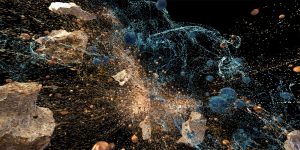
What is Noise? Interdisciplinary Discussion
Marc Aguilar and Víctor Jiménez (ES)
The team behind Noise Maps invite international experts in noise and sound to discuss our attitudes to noise, its effects and affect, and our agency in shaping soundscapes in this panel discussion with time for audience questions.
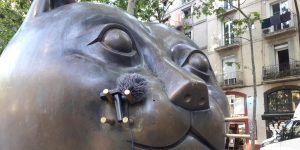
Sonic Heritage of Inner City Barcelona
Marc Aguilar and Víctor Jiménez (ES)
Bit Lab Cultural Cooperative work on Noise Maps with residents of Raval to gather audio recordings using audio moths placed around the city, and learn how to best investigate urban noise.
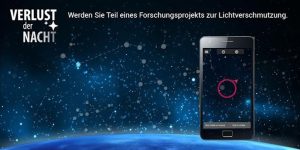
Loss of the Night
Helga Kuechly, Chris Kyba (DE)
The Loss of the Night team explains how light pollution affects our view of the night sky, and how our experience can be transformed into data. The presentation will kick-off a 24-hour global observation, where teams around the globe will tune in to show us what the night sky is like in their location, with the help of the Loss of the Night app.
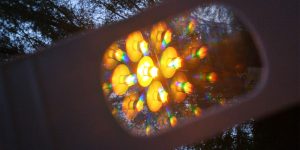
Tired Moths and Quiet Stars
Sibylle Schroer (DE)
The 'Crime Scene’ Streetlight project works with citizens and schools to research the effect of the design of street lamps on flying insect populations. Join the team at Brandenburg maker-hub Verstehbahnhof, where local teenagers will be gathering data about pollution; before touring the four Tatort Streetlight locations and learning how to identify flying insects.
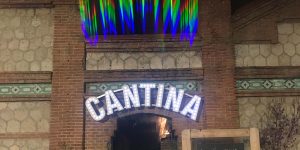
Street Spectra – Join the Streetlights Hunting!
Lucía García (ES)
Turn your smartphone into a scientific instrument using a cheap diffraction grating. The Street Spectra citizen science project lets you get surprising pictures of the colourful spectra produced by the streetlamps in your neighborhood.
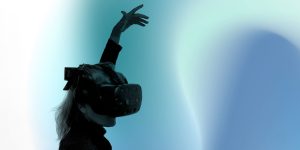
Dance the distance
Ariella Vidach (IT), Claudio Prati (CH), Paolo Solcia (CH), Riccardo Santalucia (IT), Sebastiano Barbieri (IT), Francesco Luzzana (IT), Giovanni Landi (IT)
Live Guided Tour in a Dance Virtual Studio. MEET’s second project Dance the distance is a live guided tour through a virtual dance studio. Participants as avatars will be able to meet the virtual dancers and join an open rehearsal for a VR dance performance in progress.
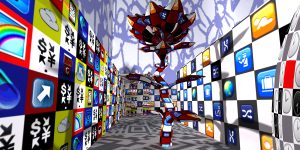
CNMAT ODOT
John MacCallum(USA), Jeff Lubow (USA)
In this workshop, we will provide a brief, practical introduction to odot, a dynamic, multi-paradigm programming environment that operates on Open Sound Control. Developed at CNMAT beginning in 2007, odot has evolved into a powerful and robust suite of tools useful in a variety of contexts, from gesture signal processing to computer-aided composition. During this workshop, we will discuss the current state of the package and the future of the project.
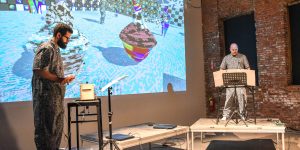
ORCHIDEA with Composer and Lead Researcher at CNMAT
Carmine Cella
Carmine Cella is available to host a live online demonstration/workshop for ORCHIDEA, a framework for static and dynamic computer-assisted music orchestration. Orchestration consists largely of choosing combinations of sounds, instruments, and timbres that support the narrative of a piece of music. The ORCHIDEA project assists composers during the orchestration process by automatically searching for the best combinations of orchestral sounds to match a target sound, after embedding it in a high-dimensional feature space.
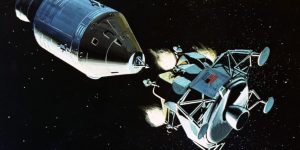
A new moon landing
Mehak Sarang
We are going to the moon again, and this time, to stay. But how should we do it this time and do it right?

Interplanetary Time, Communication, and Longevity
Che-wei Wang, Sands Fish
When distance is measured by light years, how do we learn from the past and make decisions for the future?
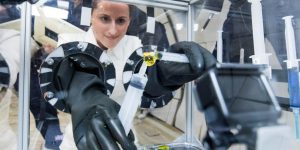
Wellbeing in Extreme Environment
Maggie Coblentz
How do we adapt to extreme conditions and how we care for each other? In the time of pandemic and isolation, can we learn from astronauts and people who have lived through hardships?
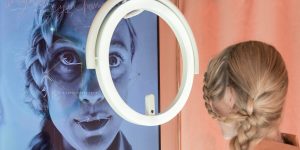
BIOMETRIC MIRROR
Lucy McRae, Natasha Greenhalgh, Dr Niels Wouters
Biometric Mirror is an immersive and at times controversial installation that blends the act of casually glancing at one’s reflection with modern algorithmic perspectives on facial perfection. The artwork explores the accuracy and flaws of artificial intelligence and the ‘uncanny valley’ of algorithmic perfection and its potential black mirror outcomes.
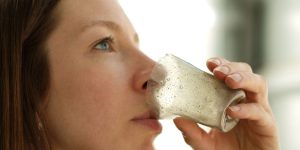
SEAWEED SALON
Lichen Kelp, Jessie French
A two-part workshop series by the Seaweed Appreciation Society International that invites you on a field trip to another world - an alternate seaweed reality, where edible algae bioplastics are mixed up alongside refreshing seaweed cocktails. By speculating on a radically sustainable seaweed future, we will be asking if biomutualism can play a part in our everyday lives in the future. A radical sustainable seaweed intervention has never felt more urgent.


